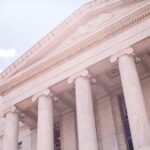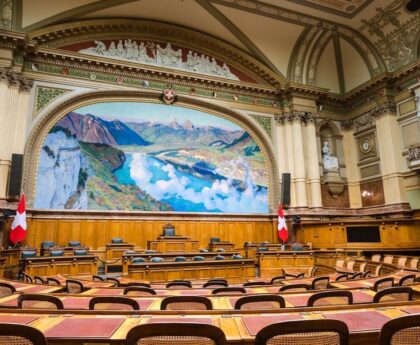US Ambassador Flags Potential Julian Assange Plea Deal
The Ongoing Detention of Julian Assange
The ongoing detention of Julian Assange, the founder of WikiLeaks, has attracted significant international attention and controversy. Assange, an Australian national, has been fighting extradition to the United States from the United Kingdom to face charges of espionage and computer misuse relating to WikiLeaks’ publication of classified diplomatic and military documents over a decade ago. Despite years of legal battles in British courts, Assange’s hopes for avoiding extradition suffered a setback when US Secretary of State Antony Blinken rejected calls from Australia to end Assange’s prosecution.
Hope on the Horizon
However, there now appears to be a ray of hope for Assange with the remarks made by the US ambassador to Australia, Caroline Kennedy. During a meeting with Assange supporters at Parliament House in June, Kennedy hinted at the possibility of a potential plea deal that could allow Assange to return to Australia. When questioned about the likelihood of a diplomatic solution, Kennedy stated that while it may not be a strictly diplomatic issue, there is a genuine possibility of a resolution.
The Role of the Justice Department
Despite Kennedy’s positive remarks, it is important to note that any potential agreement would ultimately be determined by the US Justice Department. Kennedy emphasized that the decision lies within the jurisdiction of the US legal system. Therefore, while there may be optimism surrounding the potential for a plea deal, the final outcome will depend on the discretion of the Justice Department.
Editorial: Balancing Justice and Press Freedom
Complex Moral Dilemmas
The case of Julian Assange raises complex moral and ethical dilemmas that have far-reaching implications for both press freedom and national security. On one hand, Assange’s supporters argue that his actions in publishing classified information were driven by a commitment to transparency and holding governments accountable. They contend that prosecuting him would set a dangerous precedent that threatens the freedom of the press.
The Need for Accountability
On the other hand, critics argue that Assange’s actions went beyond journalism and constituted a breach of national security. The US government believes that his alleged role in the compromise of classified information warrants prosecution. They argue that the responsible dissemination of sensitive information is crucial for national security and the protection of diplomatic relations.
Finding a Middle Ground
Amidst this highly polarized debate, there is a need to find a middle ground that upholds both press freedom and the principles of justice. The potential plea deal discussed by Ambassador Kennedy provides an opportunity to strike a balance between these competing concerns. If such an agreement is reached, it would not only allow Assange to return to Australia but also potentially set a precedent for future cases involving whistleblowers and the disclosure of classified information.
Advice: Advocating for Legal Frameworks
Press Freedom and National Security
As Australia navigates the complexities surrounding Assange’s extradition case, it is crucial for policymakers and legal experts to reflect on the delicate balance between press freedom and national security. The country should take this opportunity to evaluate its own legal frameworks regarding the publication of classified information and the protection of whistleblowers.
Establishing Protections and Guidelines
A robust legal framework should offer protections for journalists and whistleblowers who uncover wrongdoing in the public interest while also setting clear guidelines for responsible reporting and the preservation of national security. By striking the right balance, Australia can provide a model for other nations grappling with similar challenges.
The Importance of Diplomacy
Additionally, Australia should continue diplomatic efforts to advocate for a fair and just resolution in Assange’s case. The government should engage with its US counterparts and emphasize the significance of upholding the principles of press freedom while considering the potential consequences of prosecuting individuals who leak classified information.
In conclusion, the potential plea deal discussed by the US ambassador to Australia offers a glimmer of hope for Julian Assange and his supporters. The case highlights the need to find a balance between press freedom and national security, prompting Australia to reevaluate its legal frameworks and engage in diplomatic efforts. By doing so, the country can contribute to shaping the global discourse on whistleblowing, press freedom, and the responsible handling of classified information.

<< photo by Tingey Injury Law Firm >>
The image is for illustrative purposes only and does not depict the actual situation.
You might want to read !
- The Dark Shadow: Paul Dawson’s Alleged Connection to Sinister Crimes
- Judicial Jumble: Power Outage Sends Court System Into Disarray
- “Dawson Family’s Troubling Allegations: Paul Dawson Accused of Underage Sexual Misconduct”
- Caroline Kennedy hints at potential plea bargain for Julian Assange: An exploration into the shifting dynamics of the Assange case.




